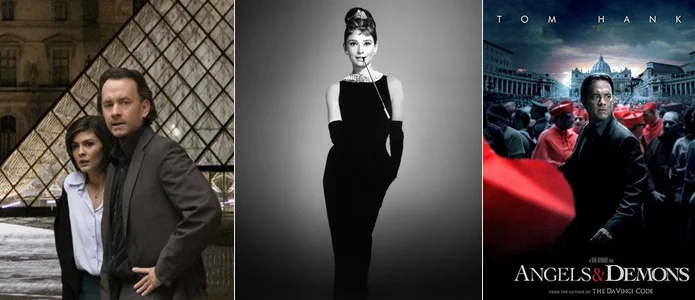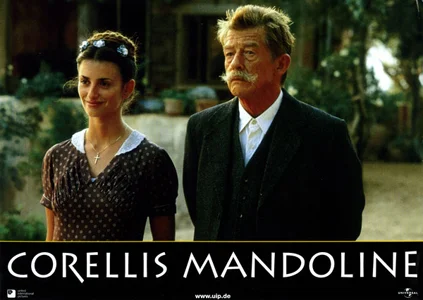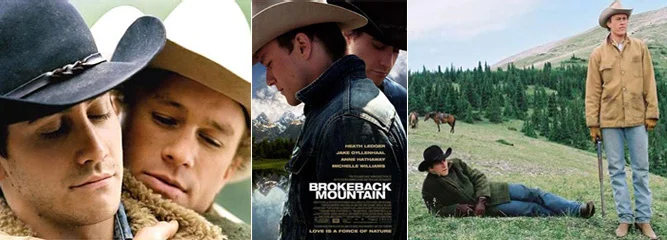Novels to Screen Adaptations
Welcome to Cinematic Releases spring update. Due to this year’s Academy Awards audience enthusiasm for best adapted screenplays, I’ve decided to explore the medium of page to screen. I’ll then take a retro look at a master collaboration between author, screenwriter, Harold Pinter and brilliant 60’s film director, Joseph Losey.
An Avid Book Clubbers Take on Novels for Films
By Chris Margolin
My book club, which has been in existence since 1992, has read 128 books in that time and as much as we love to read, we also love the movies. It has occurred at various times, that the books we just finished reading or are currently reading, have either been made into a recent film or are scheduled to be made into a film. This is rather exciting, it’s like being the first on your block to get the hoola hoop, or the latest Beatles album (am I giving away my age?) Okay, for you younger viewers, an iPhone.
After you’ve invested time and attention to a book, especially if you’ve enjoyed it, you feel a part of it. Often you hate to finish it because the characters are now a part of your life and you anticipate a letdown at the end. When you really love a book, its lyrical sentences, its redeeming characters, its powerful imagery, its exciting or profound story, you are inside it, either for the discovery that the end will bring, or for the sense of time and place that allows you to escape your humdrum life, or for the hope that love or justice will conquer all, or to come away with another viewpoint in many of life’s mysterious ways, or to identify with the setting, protagonist’s dilemma.
From Holly Golightly to Audrey Hepburn…Quelle Right!
So when a movie is made from one of your books, you either want to see it right away, or you can’t imagine that a film will do justice to the book at all, so you are puzzled and suspicious. Who could possibly play the part of let’s say, Robert Langdon in “The DaVinci Code”? How can they possibly get 30 years of this history condensed into 2 plus hours and make sense of it, portray the emotion and intensity of it? Well, sometimes it works; sometimes they never should have tried.
Our very first book club book was Whitney Otto’s “How to Make an American Quilt”, a charming story of a group of women of different ages who gather together monthly to make quilts. The book translated very well into the movie directed by Jocelyn Moorhouse in 1995. It starred a bevy of talent: Ellen Burstyn, Anne Bancroft, Winona Ryder, Kate Nelligan, Alfre Woodard, Claire Danes, Rip Torn, Richard Jenkins and many more, it followed fairly closely to the books’ story. It was a “light” book; it was a “light” film, but we were pleased that the author’s story came across on film as a true adaptation.
The Shipping News
Next, we read “The Shipping News” before the movie was made in (2001) and I had my doubts about turning this quirky, beautiful tale of a man’s world shattering when his wife dumps him and his daughter, into a film. His transformation in a new setting where he learns to live and care again is as moving and powerful a rendition as the book version. Nevertheless; when I saw the film, I was disappointed with most aspects of it. The characters were too good-looking. For God’s sake, the setting was Newfoundland, it’s harsh, cold, and very small; you’re not likely to run into Julianne Moore up there, but she sure was in the movie! There wasn’t the connection between filmgoer and reader of the main character’s emotions, his terrors, and his ultimate acceptance of the new beginning of his life. Quoyle, played well by Kevin Spacey, first of all did not fit the character’s description in the book. This adaptation to screen did not work because one misses out on Quoyle’s inner thoughts and turmoil. It did not convey the atmosphere of the setting which was so important a theme in the book, but when half of that atmosphere in is your head, it’s tough to see another one on screen.
Skip the film, and read the book! In fact, read anything by Annie Proulx!
A Perfect Story…”Lost in the casting translation”
The next great disappointment was “A Civil Action” directed by Steven Zaillian and starring John Travolta. The book was fascinating; a true story about a group of families with alarming rates of cancer in their community who retain Jan Schlichtman, a successful attorney to sue large corporations for fouling their ground and water with toxic waste which has caused these cancers. A perfect story, a David and Goliath. It was an intensely scripted book by Jonathan Harr that was suspenseful, emotionally packed as the facts become discovered, and while reading you are hopeful these people will get redemption. I forgot exactly how many years Mr. Schlichtman worked on the case, but you can imagine that these large corporations with tons of money stalled and appealed and delayed trials for months. The movie could not begin to convey this rise and fall of emotions and the toll it took on the community or Jan Schlichtman. The worst sin was casting John Travolta as Schlichtman, I like Travolta, but he’s not really that great of an actor, he is John Travolta playing a character, he cannot become that character. Read the book!
Loved the Book…Hated the Ending!
“Corelli’s Mandolin” by Louis de Bernieres was wonderful. A WWII story set on a small island in Greece just before the Germans began to invade this area. There is a love story, of course; there are descriptions of a perfect little village with quaint and humorous characters; there are chapters of horror when the bombs fall. However; the ending was just appalling and unbelievable. Many authors seem to run out of steam as they try to close the story and I think de Bernieres is one of these authors, or at least for this story he ran out of juice. My entire book group hated the ending, but loved the book. Casting Nicholas Cage as Corelli was equally appalling, plus John Hurt as an old Greek man? I think not, especially with a strong English accent. Penelope Cruz on the other hand was almost perfect. The cinematography was beautiful, the film adaptation, so-so, about a “C”. This book is one to read, however---it’s a must. (Spoiler alert) Be sure to have Kleenex when the war becomes ugly.
Seabiscuit , “the little horse that could”…
“Seabiscuit” was another fantastic book that was made into a film in 2003, and it was a decent depiction of the crooked-legged short horse that became the most talked about legend in the 1930’s. I’m not a racing fan, I’ve only been to two or three horse races in my life, and I’d grown up knowing the name of Seabiscuit from the cartoons, but had no idea how this horse became more famous in 1938 than Roosevelt, Hitler or any other person during those years. He galvanized the country during a most tumultuous time, and the story of the man who bought him against all advice, the trainer who knew the horse had what it took when no one else did, and the jockey who was half-blind but gritty and determined is amazing. Together these three men led Seabiscuit to become one of the most loved and winning horses of all times. The movie could not depict all the historical facts, however; but I would think that seeing the film would make someone want to read the book.
That Lauren Hillenbrand, the author, overcame a debilitating disease to write it also lends much interest to this great American story. Book a win, film to show!
No Country for Old Men” to “Brokeback Mountain”
When less is more…
Usually, I have to read the book before I see the movie, but recently the tables turned me around on that. I saw “No Country for Old Men” last year, the Cohen brother’s remarkably suspenseful film. Although graphically violent, the story between the two protagonists is fraught with tension, and we see the story through a Hitchcockian lens, we know “who done it” and are paralyzed to help the good guy, and we are sitting on the edge of our seats with terror and hope. This screen adaptation was almost exactly like the book, written by Cormac McCarthy, which I read sometime later, but the movie gives more intense action, and nervous reaction than the book. McCarthy is a writer who uses sparse descriptions, short dialogue, clipped sentences, that your imagination must be used to the fullest. In the film adaptation, the excellent cast (Josh Brolin, Javier Bardem, Tommy Lee Jones and Kelly MacDonald) are perfect in their roles and helped bring real life into the words. The setting (Texas in the summer; wide open spaces, lots of John Ford skies) adds to the tight storyline.
In this case the movie was better than the book!
Brokeback Revisited…
A spectacular transfer of story to screen is Annie Proulx’s thirty seven page short story, “Brokeback Mountain”. Wow, Larry McMurtry and Diana Ossana’s beautifully written script gave director Ang Lee a wonderful vehicle for this complex tale of a secret sexual relationship between two cowboys. The cinematography was gorgeous; an awesome background for the authors to portray their characters in their entirety. Heath Ledger and Jake Gyllenhaal perfected the joys and tragedies of their situation throughout their twenty year affair with such realness, and gave outstanding performances. This movie melded a script built from only 37 pages of a story, which became a full emotional story and Ang Lee was able to bring powerful direction to the screen…Great book to unforgettable filmmaking.
The secrets in the adapting…
It’s often difficult to fuse together two different products, a book, and a movie. A good screenplay is essential to the successful transition. We’ve all seen a movie that looked great in a preview and should have been a good film because of the story or the actors that have been cast, but often the result is a mess due to a bad screenplay. Perhaps the writer tried to do too much, cover too much of the subject, or just wrote a bad script. Too, it is often distracting when actors are cast that don’t fit the character’s persona in a book. You can get over that though, if the story comes across as powerfully as the book’s.
The Hollywood Treatment
Sometimes Hollywood powers-that-be try to add something that doesn’t fit the characters, or sense of time. I am reminded that when Tim Robbins was directing “Dead Man Walking”, which was based on a true story and book written by Sister Helen Prejean, his producers wanted a love story and sex between Sister Prejean and the convicted killer, played by Sean Penn. There was no sexual relationship between these two people, yet Hollywood tried to nudge a false rumor into the movie for no other reason than selling it; making it more appealing, I guess, to those who need titillation. We know how often these scenes are in movies that need not be because they are not essential to the film; it’s about bringing people to the theaters and Cineplex’ and if changing the book makes that happen, it’s all good. I disagree; I think audiences can detect falseness.
But exactly what makes a good film based on a good book?
This is a subject that could be explored forever, because there have been so many successful ones…Gone With the Wind, Little Women, Jane Eyre, One Flew Over the Cuckoo’s Nest, and countless more. Perhaps it is very subjective as to a good adaptation to film; what works for me, may not work for you, and vice versa. In my view, it is the screenplay that must be as good as the book in order for this transition. If the actors portraying the characters can’t convey the feelings from the words given them, then nothing will ring true. If the story is changed too much to believe in, it won’t work.
We just finished reading Doris Kearns Goodwin’s masterpiece, “Team of Rivals“ about Abraham Lincoln’s rise to the presidency. Over seven hundred pages not including footnotes, this book took ten years to write and is so interesting, compelling, and full of history. Can you believe someone wants to make a movie of it? Someone does; it’s just been announced. As long as John Travolta doesn’t play Lincoln, I might be tempted to see it!
Comic/Comix/Graphic Novels to Screen Adaptations
by Barbara Patnode
Adaptation is in essence taking the language of one medium and translating into the language of another medium. Although this may seem straight forward regardless of whether the translation is from one dialect to another, or from page to screen, something is bound to be lost in the translation. Limitless are the ways to get this subtle art wrong. There is only one way to get it right. When translating a book to screen(play) the only thing that matters is maintaining the central plot and theme, or the heart and soul if you will, for the original.
Tightropes and Translations
In adaptation there is a tightrope to be walked; recreating scene’s exactly as they occur in the text and providing enough key plot point clearly illustrated in the allotted time to convey a coherent story. The former is a requirement to maintain the built-in fan base of the original text, the latter to capitalize on a new audience. When done well the result is brilliance, melding mental images with visuals until it becomes difficult to remember which is from the movie and which from the book. This is seldom the case; however.
The recent trend of Comic/Comix/graphic novels to screen adaptations presents its own somewhat unique complications. The two mediums seem tailor made for each other ; both character heavy, visually dependent, relying on dialogue to convey and advance a story. It seems so simple there’s no need for story boards, the book itself is a story board. When the property is well known (Superman, Batman, Spiderman etc ;) the transition is smooth (drawing criticism from only die-hard fans) and disbelief in fantastical events and situations are willingly suspended. The success of these more familiar properties makes possible the adaptation of those lesser known creating a dilemma for screen writers. The Comix medium is popular ground for writers and artists to collaborate on subject’s not necessarily common place in popular culture.
Take for example; a sixty foot blue atomic man having an identity crisis because he has lost connection to humanity (Dr. Manhattan of Watchmen). There is a lot of information to convey to an audience who has not read the Graphic Novel. Delving too deeply into explication at the expense of the full story however; alienates fans of the novel. A happy balance must be struck to satiate both groups. With so much emphasis on appeasing the potential customer the essence of the story tends to get short shifted. The focus of the adaptation often becomes the more crowd pleasing combo of action sequences and gratuitous love plots. Instead of character development there is often character condensing; as with many of the colorful side characters in From Hell as well as Watchmen.
If the co-opt fits
On the flip side adapters can also co-opt a story with the existing historical context and ham-handedly “update” it to serve a more “topical” message. V for Vendetta is a classic dystopic view of England from the Thatcher era (in the spirit of 1984), which became a shoddy hard to follow critique of the Bush administration. From Hell turns from a daring historical forensic thriller and critique of Free Masonry’s exploration of the late 19th century England; to a supernatural cop drama with plenty of gore and romance. In Wanted, a story that freely revels in its own counter cultural filth, glorifying murder, rape and breaking any law that comes along for the sheer joy of it; a slightly different track was taken. A quick fix up at the beginning explaining the assassination is okay because supernatural loom always picks the right guy to kill makes the main character Wesley a blameless hero, instead of the fiercest most evil emotionless and efficient killer of all time. The criminal quintet that rules the world and willfully makes life a living hell, is scrapped for a slightly less evil Morgan Freeman and his band of plucky assassins fighting the good fight.
The Little Mermaid to Spielberg’s Minority Report
Science Fiction and children’s stories are also common victims of over simplification, modernization and the dreaded “Hollywood Ending,” as with Johnny Mnemonic, Minority Report, The Lion King, and The Little Mermaid. With novels, however; the visuals are not pre-drawn and less emphasis is put on “the look” corresponding with the original work because the visuals exist only in the readers head. With the comix medium it is possible, and in some cases expected; to match the book frame for frame as Zack Snyder often does (300, Watchmen). Such slavish devotion to the original source material can still hit far wide of the mark and miss the point of the text entirely. In 300 an extraneous love plot as well as political intrigue and betrayal is added without textual justification. As if 10,000 vs. 300 weren’t steep enough odds; the adaptors of the famous Spartan legend felt it necessary to further convolute an ancient warrior code driven society with dirty politics and sex scenes just to spice things up.
Watchmen’s scene set up is flawless (many stills from the movie are exact replicas of the novel’s panels), but what the heck was the point of the story?! Movie goers might come away from viewing this film with a confused idea of a blue superman taking the blame for a rich guy in tights who A-bombs all major US cities to force world peace. Oh yeah, and Nixon’s a jerk too; instead of Moore’s more nuanced and complicated meditation on Heroes and what exactly it means to be one.
Although they are often tragic to watch for fans of the “book’, adaptations do have one positive element totally outside the realm of cinema. They increase book sales and readership of content that might otherwise never be explored by the culture at large. Due to the mere controversy they cause, adaptations create dialogue between people and force deeper thought and exploration into the heart and mind, which creates a savvier consumer and that’s always a good thing. In the rarest of cases, sometimes “they” get it right and it is for those cases that I keep buying tickets!
Adaptations that got it right!
A Scanner Darkly
Barman Begins (Batman: Year One)
Fight Club Adaptation (The Orchid Thief)
Lord of the Rings (all 3)
Let the Right One In
AKIRA
Ghost in the Shell
Perfume
Do Androids Dream of Electric Sheep aka (Blade Runner)
Bibliography
Wanted by Mark Millar, JG Jones and Paul Mounts
From Hell by Alan Moore and Eddie Campbell
V for Vendetta by Alan Moore, David Lloyd, Steve Whitaker and Siobhan Dodds
Watchmen HN Higgins
300 by Frank Miller and Lynn Varley
@ 2003-2009 Wildcelt Cinematic Releases Images are used in accordance with the Fair Use Law and as such are property of the film copyright owners.













